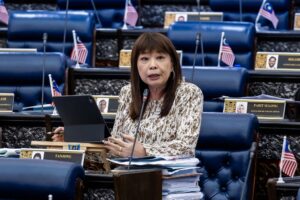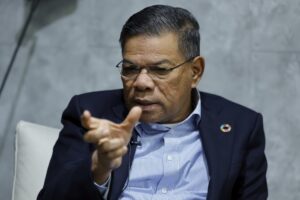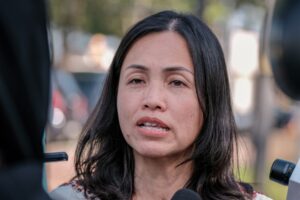KOTA KINABALU, Oct 25 — A coalition of Sabah-based and national civil society organisations has urged the Election Commission (EC) to extend postal voting rights to out-of-state Sabahans ahead of the state election scheduled for November 29.
In a statement released today, the ten organisations — Suara Mahasiswa UMS, Hai Mandak!, Sabah Entitlement & Equity Now (SEEN), Cahaya Society, PACOS Trust, Persatuan Bertindak Pilihan Raya Bebas dan Saksama (Tindak), the Coalition for Clean and Fair Elections (Bersih), ENGAGE, Persatuan Pemangkin Daya Masyarakat (ROSE) and Project Stability and Accountability for Malaysia (Projek SAMA) — called upon the EC to act decisively to ensure that more Sabahans are able to exercise their right to vote.
The groups said the expansion of postal voting could start with three groups that are logistically feasible to include within the next few weeks — Sabahan students studying in public universities outside the state, Sabahans who are hospitalised or living in nursing homes, and those who will be on duty during the election such as candidates, election agents, polling and counting agents.
They estimated that between 40,000 and 50,000 Sabahan students are currently enrolled in universities in Peninsular Malaysia and risk being disenfranchised due to travel constraints.
They emphasised that such an expansion does not require any change in law, as the EC has the authority under Section 2, Paragraph 3(1)(e) of the Elections (Postal Voting) Regulations 2003 (EPVV) to declare new categories of postal voters.
The organisations also pointed out that Article 115 of the Federal Constitution compels all public authorities to assist the EC in carrying out its responsibilities, suggesting that there is no administrative obstacle for the commission to act swiftly.
Applications for the first two categories, they proposed, could begin on November 3 and close on November 7, while the deadline for election workers could be extended to November 15, which coincides with nomination day.
They added that universities and colleges could assist through their student affairs departments, while hospitals and nursing homes could facilitate the process for their patients and residents.
Returning officers, they said, could play a role in ensuring that election agents and other on-duty personnel receive their postal ballots efficiently.
The groups said that if the EC found these proposals infeasible, it should publicly explain why.
The statement expressed concern that voter turnout in the coming election could fall below 60 per cent, or even 50 per cent, which would undermine the legitimacy of the next Sabah State Legislative Assembly and government.
It noted that this would be the second statewide election in Sabah since the implementation of automatic voter registration and the lowering of the voting age to 18 under Undi18 — reforms that have expanded the electorate but tend to push turnout rates lower.
Historically, Sabah’s voter turnout has been five to seven percentage points below the national average.
During the 15th General Election (GE15), the national turnout was recorded at 74.7 per cent, while Sabah’s stood at only 64.4 per cent — a difference of 10.3 percentage points.
The statement also described it as unjust that overseas Sabahans are allowed to vote by post while domestic out-of-state Sabahans must travel home to cast their ballots.
This situation, it said, creates a class divide between those who can afford to fly and those who cannot.
The groups also proposed that once the election concludes, the EC should begin building a database of Sabah voters residing outside the state, in collaboration with the National Registration Department.
This would help the commission plan more effectively for future postal voting exercises. — The Borneo Post





